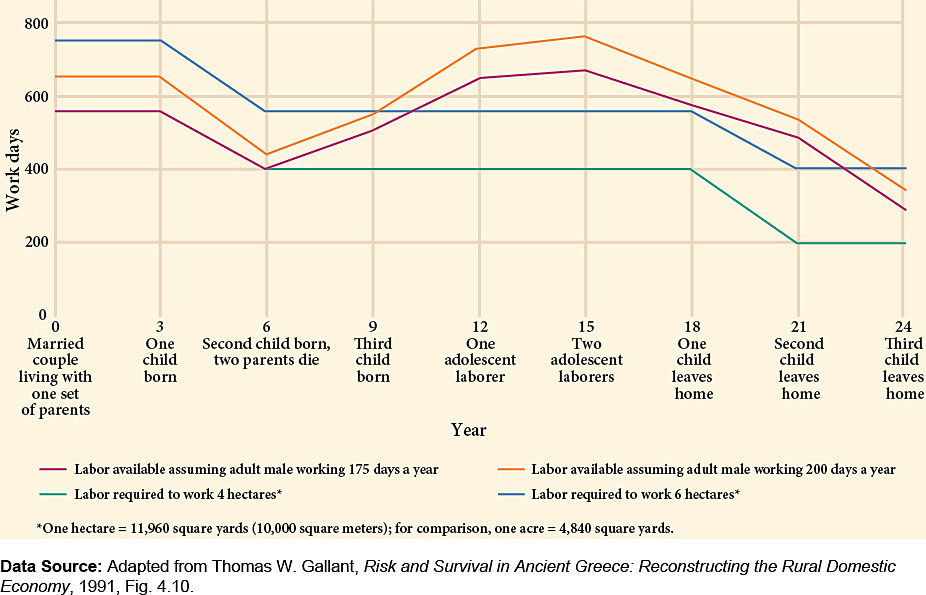Taking Measure: Greek Family Size and Agricultural Labor in the Archaic Age
Printed Page 75
Important EventsUsing archaeological surveys and estimates of population size, modern demographers have calculated the changing relationship in the Archaic Age between the number of people in a farming family and the amount of land that the family could cultivate successfully. The graph shows how valuable healthy teenage children were to the family’s prosperity. For example, when the family had two children old enough to work in the fields, it could farm over 50 percent more land, increasing its productivity significantly and thus making the family better off.

Question to Consider
What do you think might have been the consequences of the trajectory of the amount of labor available to a family over the long term?